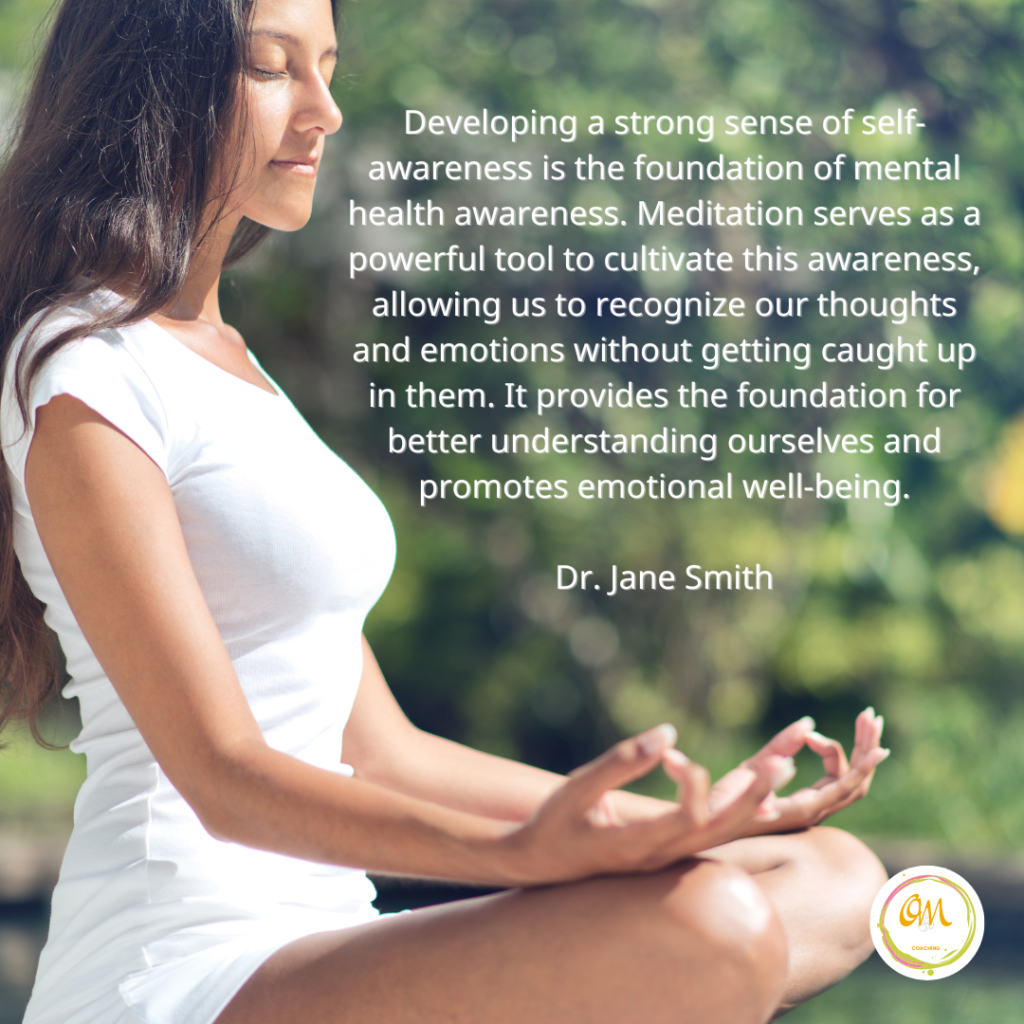The Science of Spirituality Series: On Awareness
Delving into the realm of spirituality uncovers a treasure trove of ancient wisdom and modern research that illuminates the transformative power of mindfulness. In cultures as ancient as Vedic Indian society, the profound importance of cultivating awareness and inner strength was recognized. Practices like meditation, yoga, and mindfulness formed integral parts of their spiritual and philosophical traditions, serving as vehicles for self-awareness and personal growth.
The Vedic texts, including the Upanishads, placed a special emphasis on the concept of “Atman,” the individual self or soul, and the pursuit of self-realization. This pursuit involved developing a deep understanding of one’s true nature, transcending the limitations of the ego, and expanding consciousness.
Through practices like meditation, individuals in Vedic Indian society sought to attain heightened states of consciousness and profound connections with the divine.
My guru, Paramahansa Yogananda once said, “Through meditation and by giving full attention to one thing at a time, we can learn to direct attention where we choose.”
This quote highlights the importance of meditation in cultivating awareness and the ability to direct our attention.

Ancient Indian practices, such as self-inquiry, introspection, and contemplation, aimed to explore the nature of reality and the self. By delving into the depths of their being, individuals in Vedic Indian society endeavored to overcome fear, attachments, and limitations, thus cultivating courage and resilience.
Furthermore, the concept of “dharma” in Vedic philosophy played a significant role in fostering courage and resilience. Understanding one’s dharma, which refers to one’s moral and ethical duty, required self-awareness and a deep connection to one’s inner values.
Therefore, the ancient Vedic Indian culture recognized the importance of cultivating awareness and inner strength through spiritual practices, aligning with the contemporary scientific understanding of how awareness contributes to courage and resilience. The timeless wisdom from Vedic Indian traditions serves as a testament to the enduring significance of cultivating awareness across different cultures and time periods.
Benefits of Cultivating Awareness
Cultivating awareness through practices like mindfulness has been found to have several beneficial effects on courage and resilience. Here are a few scientific insights:
- Emotional Regulation: Mindfulness practices help individuals develop the ability to observe their thoughts and emotions without judgment. This awareness allows for better emotional regulation, enabling individuals to navigate challenging situations with composure and respond courageously.
- Increased Resilience: Studies suggest that mindfulness enhances resilience by strengthening adaptive coping strategies. Being aware of one’s thoughts and emotions promotes a non-reactive stance, allowing individuals to bounce back more effectively from setbacks and maintain a resilient mindset.
- Cognitive Flexibility: Mindfulness has been associated with improved cognitive flexibility, which is the ability to adapt and shift perspectives when facing adversity. This mental agility enables individuals to approach challenges with creativity, explore alternative solutions, and exhibit courageous behaviors.
- Reduced Fear Response: Neuroscientific research indicates that mindfulness training can modulate the amygdala, a brain region associated with fear responses. By calming the amygdala, individuals can experience reduced fear and anxiety, making it easier to step out of their comfort zones and embrace courage.
- Self-Awareness and Values Alignment: Cultivating awareness fosters self-reflection and introspection, allowing individuals to gain a deeper understanding of their core values and aspirations. When one’s actions align with their values, it fuels a sense of purpose and courage to face challenges that may arise on their path.
These scientific insights highlight how cultivating awareness through mindfulness practices can contribute to increased courage and resilience.
How to Practice Mental Health Awareness: Unleashing the Power of Meditation
In our journey of mental health awareness, one practice stands out as a transformative tool for cultivating profound awareness: meditation. With its rich history and proven benefits, meditation provides a gateway to deep self-reflection, emotional well-being, and heightened consciousness. Let’s explore how incorporating meditation into our lives can enhance mental health awareness and promote overall well-being.

The Power of Meditation
Meditation, a centuries-old practice found in various cultures and traditions, has emerged as one of the most powerful methods to increase awareness. By creating a space for stillness and introspection, meditation allows us to observe our thoughts, emotions, and sensations with non-judgmental awareness. Through regular practice, we develop the ability to detach from the noise of everyday life and connect with our inner wisdom.
As a leading expert, Dr. Jane Smith explains, “Developing a strong sense of self-awareness is the foundation of mental health awareness. Meditation serves as a powerful tool to cultivate this awareness, allowing us to recognize our thoughts and emotions without getting caught up in them. It provides the foundation for better understanding ourselves and promotes emotional well-being.”
Engaging in meditation creates a mental environment that fosters clarity, calmness, and resilience. It offers a refuge from the chaotic pace of modern life, allowing us to tune into our inner landscape and gain valuable insights. Regular meditation practice has been scientifically proven to reduce stress, improve emotional regulation, and enhance overall well-being.
Moreover, meditation expands our capacity for empathy and compassion, enabling us to forge deeper connections with others and ourselves. Through the lens of awareness, we develop a greater understanding of our own mental health and the well-being of those around us. This heightened awareness prompts us to take proactive steps towards self-care and support others in their mental health journeys.
Guided Mediation on Cultivating Resiliency
As we celebrate National Mental Health Awareness Month, let us embrace the healing science of mindfulness and cultivate awareness in our lives. Through practices like meditation, we can deepen our self-understanding, enhance our emotional well-being, and foster the resilience needed to navigate life’s challenges.
I invite you to experience this transformative journey for cultivating resiliency through this guided meditation.
Allow yourself the gift of inner strength and the capacity to face life’s trials with renewed determination. Embrace the healing science of mindfulness and witness the positive impact it can have on your mental health and overall well-being.
In this guided meditation, you will embark on a transformative journey of cultivating resiliency. With each breath, you will delve deeper into your inner strength, uncovering the wellspring of courage that resides within you. Through gentle guidance and mindful awareness, you will develop the tools to navigate life’s challenges with grace and determination.
Join me on this empowering journey and unlock the true potential that lies within you. Together, let us embrace resilience, harness the strength of mindfulness, and discover the extraordinary possibilities that await on the path to self-discovery and inner transformation.
Remember, you possess the resilience to thrive, and by dedicating time to nourish your inner strength, you can create a life of resilience, purpose, and fulfillment. Take this opportunity to prioritize your well-being and embark on a transformative path toward cultivating resiliency through the power of guided meditation.








